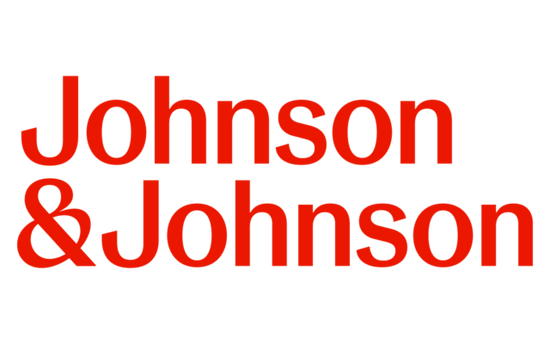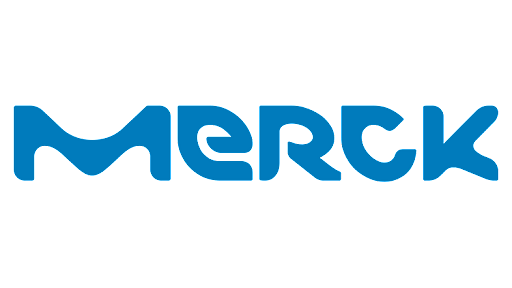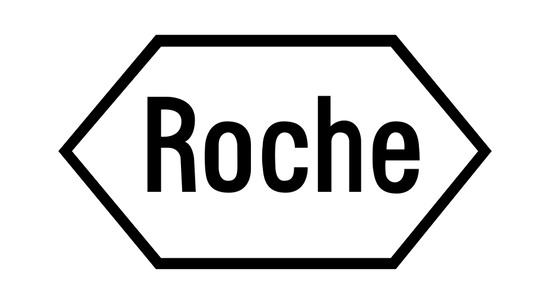
PHARMACEUTICAL SALES TRAINING





TRAIN ULTIMATE SALES CHAMPIONS
Unlock the true potential of your pharmaceutical sales teams through our immersive, interactive learning experiences. Designed by industry veterans and subject matter experts, our comprehensive training solutions equip your representatives with mastery over consultative selling techniques, questioning strategies, active listening skills, and regulatory compliance. Leverage cutting-edge technologies like branching scenarios, virtual role-plays, and microlearning to cultivate a sales force adept at navigating complex provider conversations. From regulatory mastery to value articulation, our tailored curriculum fosters trusted, ethics-driven partnerships that resonate with healthcare providers and elevate patient outcomes.

Pre-Training Assessments
- Interactive roleplay simulations with branching scenarios to demonstrate skills like questioning, listening, and objection handling. Automatically scored based on selections.
- Online quizzes and tests to assess industry, compliance, and product knowledge.
Automated grading. - Score Cards - Roleplay simulations and quizzes would have automatically scored right/wrong responses to skills-based questions.
Modules on sales communication skills
- Emailing & Cold calling - Proper etiquette, writing concise messages, follow-up cadences, and attaching relevant clinical data. Scenarios for responding to physician questions over email.
- Presentations - Presentation best practices focusing on pharmaceutical products and data. Design principles for clear, compelling slides. Demo and feedback on delivering presentations.
- Questioning skills - Types of questions to ask physicians to understand patient populations, unmet needs, preferred treatments. Practice sessions.
- Active listening - Building rapport through nonverbal cues, questioning, and empathy.
Exercises with physicians roleplaying patients.
Sales Negotiation Training
- Protecting Margins - Strategies and tactics to defend against customer demands for discounts and avoid price erosion.
- Stopping Price - Cutting Competitors - Responding to competitors undercutting on price.
Assessing threats. Communicating value over price. - Negotiation Skills - Frameworks, body language tips, questions to uncover motivators, negotiating ratios and building consensus.
- Responding to Objections - Catalogue of common pricing objections with proven responses. Scenario practices.
- Uncovering Willingness to Pay - Skillful questioning to reveal what customers are
willing/able to pay. Aligning to value. - Building Value - Quantifying ROI, health outcomes, differentiators to justify premium pricing.
- BATNA (Best Alternative to a Negotiated Agreement) - Calculating walkaway points.
Figuring Plan B options. - Anchoring - Establishing a high starting price anchor. Adjusting down slowly within guardrails.
- Creative Deal Structures - Offering discounts on other products, bundling, financing options, outcome-based deals.
- Increase Profitability - Calculating profit margins. Setting minimum guardrails. Win-win pricing solutions.
Strategic planning content
- Pre-call & pre-meeting planning - Gathering background on physician's therapies used,
patients, and affiliations. Prioritizing topics and customizing to their interests. - Account profiling - Segmenting physicians not just by specialty but by clinical preferences, attitudes toward reps, personality, motivators.
- Value propositions - Articulating clinical and economic value propositions around specific drugs. Case studies and practice.
- Influencer mapping - Identifying which clinicians influence prescribing patterns. Tailoring approaches.
Executing plans
- Timelines - Step-by-step call plans pre-launch through regular follow up touchpoints post-launch.
- Following up - Pharma-specific tools for reminders and tracking follow up items. Logs and databases to maintain.
- Leveraging resources - Engaging nurse educators, medical science liaisons, samples, grants etc. effectively.
- Adaptability - Adjusting strategies for restrictive institutions, skeptical physicians, changes in formulary.
Engaging different customer types
- Profiling early adopters, late adopters and clinically-focused customers based on
attitudes, motivation, communication preferences etc. - Case studies of physicians in each category with tailored influence strategies for each.
- Role plays practicing tailored approaches for each category.
Real world scenarios
- Stopping doctors - Quick value proposition delivery, responses to objections, following up. Decision trees of effective approaches.
- Follow-ups - Rules of etiquette regarding gifts, email vs. in-person follow up, reinforcing value proposition.
- Building rapport - Respecting time, framing questions to demonstrate expertise, offering clinical data resources.
Professional ethics and regulatory compliance in pharma sales
- Ethics and Professionalism - Standards for integrity and ethical conduct from industry associations (e.g. PhRMA code). Maintaining professional credibility and company reputation.
- Compliance and Regulation - Overview of FDA regulations, off-label promotion rules, fair balance in presentations, adverse event reporting. Staying compliant across sales activities.
- Anti-Kickback Statute - Guidelines around gifts, meals, reimbursement, samples, business courtesies etc. to avoid bribery/corruption.
- HIPAA - Protecting patient privacy and confidentiality. Proper data handling procedures.
- PhRMA Code - Examining principles for ethical drug promotion and intellectual property.
Guidance for sales reps. - Transparency and Disclosure - Reporting compensation, educating on Affordable Care
Act/Sunshine Act requirements. - Conflicts of Interest - Case studies around identifying potential conflicts. Setting
boundaries with healthcare providers. - Content Validation - Ensuring clinical data and claims are supported by approved sources. Fair balance.
- Scenarios - Navigating situations involving unethical conduct, conflicts, off-label
questions, etc.
Account Management
- Account Planning - Developing structured plans for short and long-term account growth,
identifying key stakeholders and influencers. - Opportunity Management - Identifying areas of value alignment and mapping the decision process to accelerate opportunities.
- Team Selling - Collaborating cross-functionally to pursue opportunities, leveraging collective expertise.
- Customer Relationship Management - Tracking account details and interactions in CRM systems to maximize relationships.
- Patient Journey Mapping - Understanding the end-to-end patient experience to uncover unmet needs.
- Account Reviews - Regular business reviews to analyze performance, address issues, and refine strategies.
- Contracting - Structuring contracting terms and processes to lower risks and costs.
- Pricing Optimization - Customizing pricing models and discounts to match account situation.
- Patient Assistance Programs - Providing resources to support patient access and adherence.
- Advisory Boards - Convening KOLs to provide input on educational needs, data gaps, R&D.
- Loyalty Programs - Offering high-value services, concessions or amenities to retain accounts.
- Metrics Analysis - Evaluating performance on profitability, share of wallet, prescribing trends.
Cross-selling
- Cross-selling - Identifying opportunities to sell complementary products to current customers. Bundling offerings to provide solutions.
- Upselling - Moving customers to higher dosage, quantity, or premium products to increase profitability.
- New Product Launches - Effectively introducing new products and updates to the account.
- Clinical Data Integration - Educating on new indications, research, and protocols to uncover new opportunities.
- Treatment Protocol Reviews - Analyzing pathways to insert products or capture greater share.
- Inventory Management - Advising on ideal inventory levels and order frequencies for different products.
- Patient Subsidies - Offering coupons, discounts, or access programs to get products to more patients.
- Category Reviews - Evaluating account usage across entire pharmaceutical categories to find gaps.
- Purchase Consolidation - Positioning portfolio breadth to consolidate vendor purchases.
- Bundling - Packaging products together at discounted pricing for greater volume.
- Upsell Bundling - Pairing new premium products into existing bundles.
- Stepped Therapy - Promoting movement to more advanced products once experience is gained.
Post-Training Assessments
- Interactive roleplay simulations with branching scenarios to demonstrate skills like questioning, listening, and objection handling. Automatically scored based on selections.
- Online quizzes and tests to assess industry, compliance, and product knowledge.
Automated grading. - Score Cards - Roleplay simulations and quizzes would have automatically scored right/wrong responses to skills-based questions.
FAQs
- Our program is developed in close consultation with regulatory affairs experts to ensure full adherence to FDA, OIG, and PhRMA guidelines. All content goes through a strict multi-stage review process, and we incorporate real-world examples of compliant and non-compliant scenarios to reinforce best practices.
- Absolutely. We start with a comprehensive needs analysis to understand your unique product portfolio, value propositions, and brand strategies. The training is then fully customized using your approved marketing materials, clinical data, and competitive positioning.
We employ a blended learning model that optimizes engagement and knowledge retention. Virtual modules provide self-paced instruction, while immersive in-person workshops focus on applying consultative skills through role-plays, coaching, and peer coaching. The ratio can be adjusted based on your needs.
Training effectiveness is evaluated at multiple levels through knowledge checks, skill assessments, learner surveys, and real-world observations. We also analyze business impact metrics like call quality, prescriber feedback, and territory sales performance pre/post-training.
Yes, our programs are designed for long-term sustainability via a robust training repository. New hire cohorts can cycle through the full curriculum, while veteran reps can access refresher modules, job aids, and other resources through the learning management system.
Definitely. We recognize that training is most effective as a continuous process. Post-training, your teams can access virtual coach-the-coach sessions, live webinars, self-study tools, and feedback simulations to reinforce key concepts and sustain behavior change.
YOU ARE IN GOOD Company










LET’S WORK TOGETHER
Whether you require an intensive onboarding curriculum for new pharmaceutical sales representatives - or - a focused upskilling initiative for tenured teams, our learning architects will collaborate closely with your stakeholders to craft an immersive, multi-modal experience. Contact us today to discuss partnering with our industry-leading training professionals.
Attempting to scale our eLearning team internally to meet rapidly growing content demands would have entailed tremendous recruitment costs and delays.
Engaging Genius Publicity's LAAS solution
provided us with a proficient eLearning team immediately,
enabling us to boost productivity sustainability without prolonged hiring efforts.
CLIENT:
CHRIS -


As a small L&D department, we struggled to produce training content quickly enough for the organization. Partnering with Genius Publicity & leveraging their LAAS offering was tremendously valuable. Their team of experienced eLearning professionals empowered us to accelerate course development enormously. What previously would have required years of internal effort was accomplished in a matter of months.
CLIENT:
SARAH -


"Partnering with Genius Publicity for their LAAS solution was the best decision we made from a corprate training perspective. Their rapid course development and localization enabled us to upskill employees globally at the pace our fast-changing industry demands!"
CLIENT:
MARK -

